For residents of Singapore eager to delve into ETF trading, the quest for a suitable trading platform offering ETFs in Singapore is of paramount importance. In this comprehensive guide, we will meticulously assess the top ETF trading platforms in Singapore, considering a range of critical factors.
Best ETF Trading Platforms in Singapore*
Here, we present a curated selection of the finest ETF brokers in Singapore. These brokers are compared on the basis of fees, security, regulation, and the array of products they offer.
If you're looking to venture into ETF trading in Singapore, this guide will aid you in making an informed choice among the available trading platforms.
1. Interactive Brokers

ETFs Available
3000+
Minimum Deposit
$1
Fees
$0 per Trade
2. Tiger Brokers
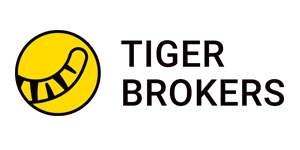
ETFs Available
3000+
Minimum Deposit
$1
Fees
0.08% of Trade Value
3. moomoo (by FUTU)

ETFs Available
3000+
Minimum Deposit
S$0
Fees
S$0.99
4. Saxo Markets
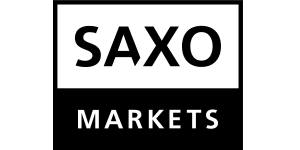
ETFs Available
3000+
Minimum Deposit
S$3,000
Fees
S$5
5. IG

ETFs Available
2000+
Minimum Deposit
S$0
Fees
S$10
6. PhillipCapital (POEMS)

ETFs Available
3000+
Minimum Deposit
S$1,000
Fees
S$0 – S$3.88
7. Standard Chartered

ETFs Available
no data
Minimum Deposit
S$0
Fees
S$10
8. DBS Vickers

ETFs Available
70+
Minimum Deposit
S$0
Fees
S$25
9. CGS-CIMB Securities
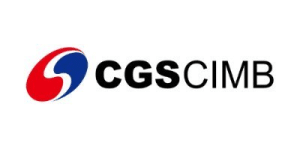
ETFs Available
–
Minimum Deposit
S$0
Fees
S$25
10. UOB Kay Hian
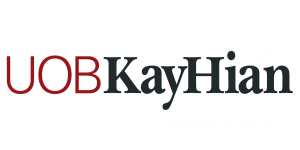
ETFs Available
–
Minimum Deposit
S$0
Fees
S$18
11. OCBC Securities
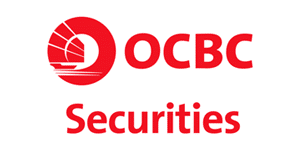
ETFs Available
–
Minimum Deposit
S$0
Fees
S$25
12. CMC Markets

ETFs Available
1000+
Minimum Deposit
S$10
Fees
spread
What are ETFs?
Exchange Traded Funds (ETFs) are investment vehicles that represent a collection of securities, much like mutual funds. The primary objective of an ETF is to mirror the performance of a specific index, such as the S&P 500, and replicate its value. ETF returns closely track the performance of the index they are designed to mimic, essentially emulating the overall market's performance rather than the performance of individual companies within that market.
How Do ETFs Function?
ETFs enable investors to attain diversified exposure to the market by investing in a single security. They operate similarly to mutual funds but are publicly traded on stock exchanges, offering convenient accessibility. ETFs can be bought and sold throughout the trading day, aligning with the stock market's opening hours.
One key advantage of ETFs is that they are index-tracking funds, eliminating the need for active management by fund managers or analysts. This cost-efficient structure often makes ETFs a more economical choice compared to traditional mutual funds. Over the medium term, ETFs tend to outperform many actively managed funds.
Benefits of Investing in ETFs
1. Passive Investing: ETFs follow an index's performance, negating the necessity for active management. This eliminates fund manager fees, allowing investors to retain a larger portion of their returns.
2. Dividend Income: As ETFs include stocks among their underlying assets, they also generate dividend income from these stocks. This is particularly advantageous for passive investors seeking a steady stream of income through dividend payouts.
3. Portfolio Diversification: ETF investors gain exposure to a diversified investment portfolio that consists of a variety of securities. For instance, the Vanguard S&P 500 ETF tracks the S&P 500 index, which comprises 505 common stocks. The S&P 500 represents approximately 80% of the total US equity market by capitalization. This diversification minimizes risk compared to investing in a single stock.
Top ETFs for Investment on the SGX (Singapore Exchange)
| ETF | Tracks | Expense Ratio |
|---|---|---|
| SPDR Strait Times Index ETF (ES3) | Straits Times Index (STI) | 0.60% |
| Nikko AM Singapore STI ETF (G3B) | Straits Times Index (STI) | 0.30% |
| ABF Singapore Bond Index Fund (A35) | iBoxx ABF Singapore Bond Index | 0.26% |
| SPDR S&P 500 ETF (S27) | S&P 500 Index | 0.095% |
| Lion Phillip S-REIT ETF (CLR) | MorningStar Singapore REIT Yield Focus Index | 0.60% |
| Nikko AM-StraitsTrading Asia ex Japan REIT ETF (CFA) | REITs in Asia | 0.60% |
| Phillip Sing Income ETF (ST) | MorningStar Singapore Yield Focus Index | 0.70% |
| SPDR Gold Shares ETF (O87) | Gold Bullion | 0.40% |
| Lyxor China Enterprise (HSCEI) UCITS ETF (P58) | Hang Seng China Enterprises Index (HSCEI) | 0.65% |
| Nikko AM SGD Investment Grade Corporate Bond ETF (MBH) | iBoxx SGD Non-Sovereigns Large Cap Investment Grade Index | 0.40% |